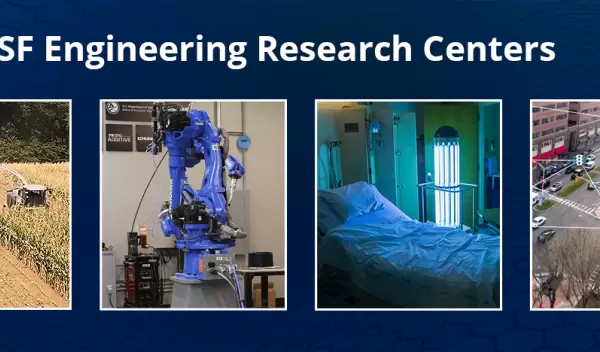
NSF announces 4 new Engineering Research Centers focused on agriculture, health, manufacturing and smart cities
Engineering discoveries and advances have the power to make transformational positive impacts on society. For decades, the U.S. National Science Foundation has been a steadfast supporter of research centers that integrate engineering with other disciplines, foster partnerships and champion innovation to create value and address national needs.
NSF announces the launch of four new Engineering Research Centers with an investment of $104 million over five years. The centers will transform technology for sustainable solutions that will impact agriculture, manufacturing, health and urban planning.
The 2022 Engineering Research Centers are listed below.
- NSF Engineering Research Center for Advancing Sustainable and Distributed Fertilizer Production will enable resilient and sustainable food production by developing next-generation, modular, distributed and efficient technology for capturing, recycling and producing decarbonized nitrogen-based fertilizers. The center involves five core partners: Texas Tech University (lead), Case Western Reserve University, Florida A&M University, Georgia Tech and MIT.
- NSF Engineering Research Center for Hybrid Autonomous Manufacturing Moving from Evolution to Revolution will accelerate the development and deployment of intelligent, autonomous manufacturing systems, enabling mass customization in local production facilities. The center involves four core partners: The Ohio State University (lead), Case Western Reserve University, North Carolina Agricultural and Technical State University, Northwestern University and the University of Tennessee, Knoxville.
- NSF Engineering Research Center for Precision Microbiome Engineering will create microbiome technologies that address challenges at the interface of human health and the built environment, promoting the proliferation of beneficial microorganisms and preventing colonization by infectious agents. The center involves five core partners: Duke University (lead), North Carolina Agricultural and Technical State University, North Carolina State University, the University of North Carolina at Chapel Hill and the University of North Carolina at Charlotte.
- NSF Engineering Research Center for Smart Streetscapes will forge livable, safe and inclusive communities through real-time, hyperlocal technologies for streets and their surroundings. The center involves five core partners: Columbia University (lead), Florida Atlantic University, Lehman College, Rutgers University and the University of Central Florida.
Visit NSF's website and read about NSF Engineering Research Centers.


